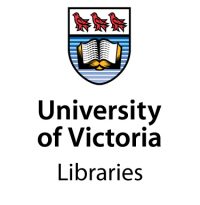Have you ever considered using open education resources for your course? Not only does it save the students money, it can give you more flexible control over the content. If you haven’t found the right resource – consider creating one! Contact the UVic Office of Scholarly Communication for guidance and support.
Here are some examples of resources available to you:
Practical Meteorology: An Algebra-based Survey of Atmospheric Science by Roland Stull, UBC
Description: The author designed this book for students and professionals who want to understand and apply basic meteorological concepts, but who don’t need to derive equations. To make this book accessible to more people, the author converted the equations into algebra. With algebraic approximations to the atmosphere, you can see the physical meaning of each term and you can plug in numbers to get usable answers. No previous knowledge of meteorology is needed — the book starts from the basics. Your background should include algebra, trig, and classical physics. This book could serve the fields of Atmospheric Science, Meteorology, Environmental Science, Engineering, Air Quality, Climatology, and Geography. Readers like you asked to see solved examples, to enhance your understanding and speed your ability to apply the concepts to your own situations. To fill this need, the author added “Sample Application” boxes for almost every equation in the book. This book is designed to be both a textbook and a reference. As a textbook, the end of each chapter includes extensive homework exercises in categories inspired by Bloom’s taxonomy of learning actions: “Broaden Knowledge & Comprehension”; “Apply”; “Evaluate & Analyze”; and “Synthesize”.
Physical Geology by S. Earle, Thompson Rivers University
Description: Physical Geology is a comprehensive introductory text on the physical aspects of geology, including rocks and minerals, plate tectonics, earthquakes, volcanoes, glaciation, groundwater, streams, coasts, mass wasting, climate change, planetary geology and much more. It has a strong emphasis on examples from western Canada, especially British Columbia, and also includes a chapter devoted to the geological history of western Canada. The book is a collaboration of faculty from Earth Science departments at Universities and Colleges across British Columbia and elsewhere.
Environmental Biology, Matthew R. Fisher, Editor, Open Oregon
Description: Environmental Biology enables students to develop a nuanced understanding of today’s most pressing environmental issues. This text helps students grasp the scientific foundation of these issues so that they can better understand the world around them and their impact upon it. This open textbook covers the most salient environmental issues, from a biological perspective. The text is designed for an introductory-level college science course. Topics include the fundamentals of ecology, biodiversity, pollution, climate change, food production, and human population growth.
Many more resources can be found on the BCCampus Open Textbooks website
